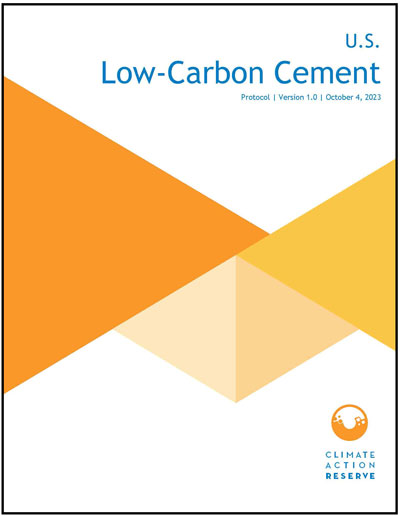Sources: ClimeCo, Boyertown, Pa.; CP staff
Sustainability consultant ClimeCo and a stakeholder working group have secured approval of U.S. Low-Carbon Cement Protocol v1.0 by the board of Climate Action Reserve, Los Angeles-based global carbon market offset registry. The 72-page document proposes terms for generating voluntary carbon credits from production of novel alternative or supplementary cementitious materials: Raw or calcined natural pozzolans; ground glass pozzolans; rice husk ash; plus harvested and beneficiated fly ash. The working group includes representatives of Ash Grove Cement, Eco Material Technology, Heidelberg Materials, along with the National Ready Mixed Concrete Association and Portland Cement Association.

ClimeCo and stakeholders target a carbon credit-based funding stream driving the commercial launch and use of alternatives to portland cement. They designed the protocol “to ensure the complete, consistent, transparent, accurate, and conservative quantification and verification of greenhouse gas emission reductions associated with a low-carbon cement project … The protocol creates a tested and valid pathway for companies to generate voluntary carbon credits and direct much-needed funds to the production of additional cementitious materials that can create the scale necessary to displace carbon-intensive cement manufacturing.”
ClimeCo and stakeholders have worked to ensure their protocol follows strict rules on additionality, permanence, ownership and quantification in generating and awarding carbon offsets. To earn credits, suppliers or manufacturers must produce usable SCM that are widely recognized as beyond business-as-usual and surpass regulatory requirements. Excluded from credit-funded candidate projects are those involving conventional fly ash, GGBF slag cement and portland-limestone cement.
“This demonstrates the power of credible, validated and science-based voluntary carbon credits in accelerating the pace and adoption of environmental reforms. It also confirms our belief that by engaging the right partners and taking a holistic approach, every industry and every company can make a huge difference,” says ClimeCo CEO Bill Flederbach.
Related articles
Purebase ramps up calciner for commercial scale metakaolin output
Eco Material sees 600K tpy of fly ash from second Georgia Power harvest contract
Charah projects nine-year, 4.3 million-cu.-yd. ash contract timeline